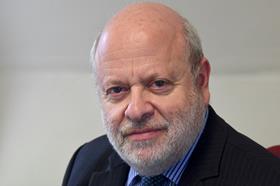At its annual meeting a few weeks ago, the American Bar Association (ABA) adopted a resolution urging ‘lawyers, as members of the legal profession and public citizens having special responsibility for the quality of justice, to devote at least 20 hours each year to efforts that advance and promote diversity, equity, and inclusion in the legal profession’.

The accompanying report made clear that the resolution is aspirational. There will be no enforcement mechanism and no sanction for non-compliance. A range of activities that would qualify for the 20 hours include both ordinary professional activities, but also others outside usual client or law firm mandates, such as:
- providing media commentary, outreach, and education regarding issues impacting diversity; and
- actively participating in organisations and associations in efforts to eliminate bias and promote diversity in the legal profession;
It reminded me of another ABA resolution from a couple of years ago on climate change. Among the list of items resolved was one urging ‘lawyers to engage in pro bono activities to aid efforts to reduce greenhouse gas emissions and adapt to climate change’.
The ABA is not alone in trying to turn lawyers into active citizens. The International Bar Association did the same in its own climate crisis statement from last year. This included the encouragement to ‘lawyers to engage with current and future legislative and policymaking efforts to address the climate crisis’ and further urged ‘lawyers, as influential figures and thought leaders within society, to live responsibly in the face of the climate crisis’.
Similarly, a few years back the Law Society of Upper Canada tried to impose an obligation – not just an aspiration – on its member lawyers to promote equality, diversity and inclusion, including outside their practices. There was a loud hullabaloo and the proposal was eventually dropped.
This article is not aimed at the intentions behind these resolutions, since I agree with the general goals of all of them. Rather it is about their reach. It seems that the days are gone when professional organisations concerned themselves with lawyers’ professional lives alone, when what lay outside the office was none of the rest of the profession’s business. Now the aim is to turn lawyers into active citizens beyond the office. That is a change.
We are not exempt from it within our own jurisdiction. Following the MeToo movement, our regulator has become much more active in pursuing claims of inappropriate sexual conduct, including outside the office. This was evidenced in the much-quoted High Court decision in Beckwith v SRA ([2020] EWHC 3231 (Admin)), involving a Freshfields partner who had sexual relations with a junior solicitor in his department after her leaving party. This raised the question of when conduct outside work may have a bearing on one’s status as a solicitor.
As is well-known, on appeal from the disciplinary proceedings, the High Court stated that the SRA principles ‘may reach into private life only when conduct that is part of a person's private life realistically touches on her practise of the profession (Principle 2) or the standing of the profession (Principle 6). Any such conduct must be qualitatively relevant’.
The move to turn us into active citizens will continue. It will begin to creep into how we behave in our law firms, too. The Gazette quoted last week the advisory board chair for the climate organisation, Lawyers for Net Zero, who said that firms need to be more discerning when it comes to picking clients: ‘Law firms can say they expect their clients to have certain values – because clients are saying it to the law firms now’.
There is no doubt that a lawyer should exhibit appropriate values in a work setting. Such appropriate values include a commitment to equality, diversity and inclusion, and may well soon include a commitment to reducing our human impact on the climate. But I do not believe that it is any part of a lawyer’s duties to be an active citizen outside work in relation to those or any other values, provided that the lawyer’s conduct does not, to quote the High Court, realistically and qualitatively touch on the practice of the profession or the standing of the profession. For instance, doing nothing outside work may not be an admirable trait, but it is not very likely to touch on professional practice.
I look forward to the discussion about values when they impact on our professional work, such as whether a law firm should divest itself of particular clients because of how they earn their living, even if I disagree with that view myself.
But we should resist all efforts to regulate or influence our behaviour once we leave the office - and the profession - behind us for the day.
Jonathan Goldsmith is Law Society Council member for EU matters and a former secretary general of the Council of Bars and Law Societies of Europe. All views expressed are personal and are not made in his capacity as a Law Society Council member, nor on behalf of the Law Society
This article is now closed for comment.































6 Readers' comments